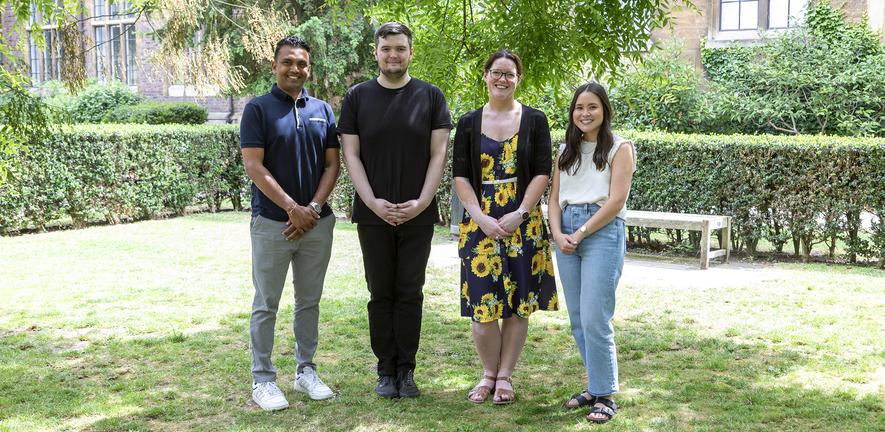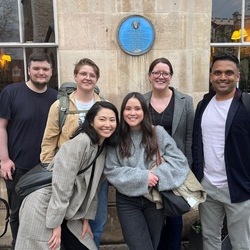
Kate Baker, Group Leader
What is your current role?
Chief juggler: I'm a Professor of Applied Microbial Genomics at the University of Liverpool and the United Kingdom Health Security Agency, an Assistant Professor of Prokaryotic Genetics at the University of Cambridge, a member of the WHO Vaccines for AMR Technical Advisory Group, an Associate Editor for Nature Antimicrobials and Resistance, a co-organiser for two international conferences, an Infection and Immunity theme co-lead for the School of Biological Sciences in Cambridge, and a member of several other internal committees.
When did you start with the department?
1st July 2023.
How did you get started in science?
I caught the bug in Year 11 Biology. I remember a specific conversation with my teacher where I didn't understand how they could know how photosynthesis worked when they couldn't see it. She told me they did 'experiments' and I was kind of amazed that facts could be established through the scientific process. I got nervous about the career path so switched out of my biomedical degree to train as a veterinarian but a few part time jobs and summer lab placements positioned me well to apply for a PhD when I left clinical work. Weirdly, at the University of Liverpool I worked down the hall from Luning Lui who ended up visualising photosynthesis for the first time while I was there so that was really neat.
What are you currently working on?
We've got a wide ranging research program that links epidemiology and microbiology through genomics. Our main areas of focus are enteric pathogens and antimicrobial resistance, and because of the huge potential of genomics we get involved in a lot of things from functional microbiology studies, mathematical models of interbacterial competition, through to vaccine studies, infection models, and the implementation of genomics for public health surveillance and interventions. We're pretty applied in our mindset as its quite rewarding to see your work being used in the near term so we work a lot with clinicians and public health agencies.
What has been a defining moment in your career?
Probably getting my postdoctoral fellowship. I was 5 months pregnant with my first child and had 12 months left on my contract. If I hadn't got the fellowship and been supported throughout my maternity by good funders (thanks Wellcome!) I'm not sure I would have hung in there. I guess it was also the first time I really felt I had total scientific ownership over the ideas in an application so having that acknowledged was both rewarding and motivating in terms of thinking I might make a decent academic one day.
What advice would you give to other women wanting a career in science?
I've been privileged to receive so much good advice during my career (and reaching out for it is a top tip!) Things that got me through and some of my own mixed in would be: Hang in there - it's a marathon, not a sprint. And, while we're on the running analogies: Run your own race – try not to worry about what other people are doing. There is no magical 'made it' moment so make sure you're enjoying the journey, and imposter syndrome never goes away – the sooner you accept it and learn to get on with your life the sooner it will stop holding you back. Don't overthink it and don't aim to join boy's clubs – just get on with doing good science and growing your own network. And for heaven's sake if/when it comes to having a family don't leave before you leave.
What are your future goals, for yourself or for women in science?
I'd like to finish unpacking the lab! And, more seriously, to contribute to the long term embedding of population health and genomic epidemiology into infectious disease research. As far as my hopes for women in science go. I hope that no one will have to feel that a pivotal moment in their career was whether they were randomly fortunate enough to get funding while pregnant. And again, more seriously, that there might be a day when 'women in science' no longer needs to be talked about because the system supports parity to the point where we can just get on with being people in science.

